TO SAY FARMERS ARE CALLOUS IS RIDICULOUS
Olwen Ford is a farmer in Llanfrothen, North Wales. She talks about her deep sense of belonging to the landscape, farming stereotypes and the economic barriers farmers face.

"If you are dealing with the environment and animals, anything living you have to be flexible."
I’m Olwen Ford, I’m the third generation on this farm. My grandfather came here in 1949 from Essex. The family travelled three days with a tractor and trailer and brought everything with them. They knew very little about farming. My grandfather was a draughtsman for Ford Motor Company. The neighbours helped them understand the place and cope with going from their previous life to a life of farming.
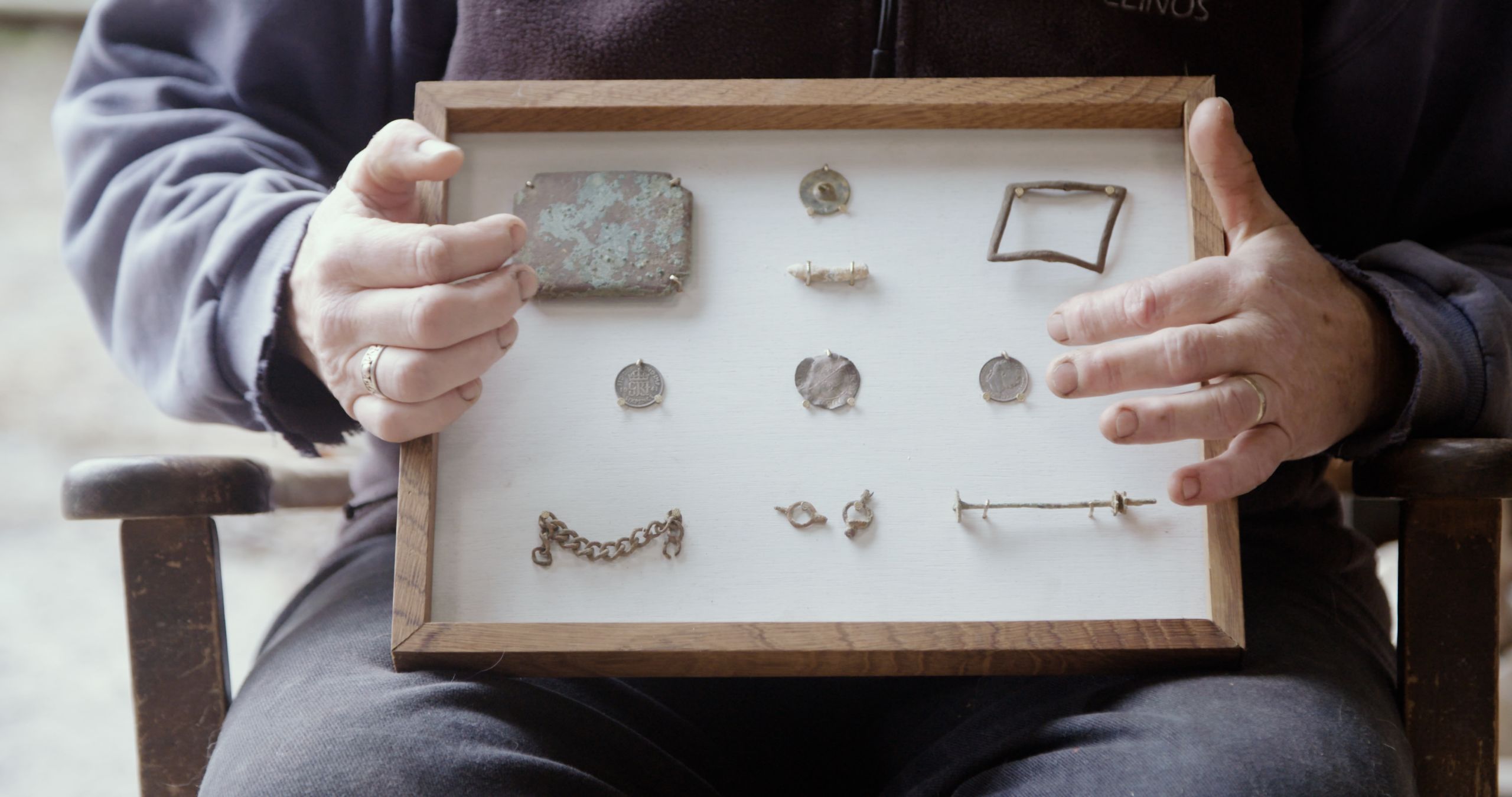
I’m very much connected to this area, it’s where I grew up and where my family has grown.
This farm is called Fferm y Llan - Llan means parish and a church is in the middle of the farm, we farm around it on drained lands, half the farm is 200 years old because that’s when it was drained, the other half you have to go back to Roman times, there are old Roman mines down the road.
I feel that this place is older than I am and it's my place to maintain it. I'm a little thing in the midst of all of this, it gives me a deep sense of belonging.
The farm was 128 acres when I took it over from my Dad. The only reason I took it over was because my brother, who’s older than me, wanted a waged job. He didn’t want the uncertainty of the farming, with farming you have to hope the market is good because if it’s not you are out of luck.
When I went into partnership with my parents, at the time it was only beef cattle, my husband and I had a small flock of sheep and we were renting some land, we then bought that land and a little bit more, we are up to about 180 or 190 acres now.
You have to stock animals knowing that a certain amount of your land needs to be growing a crop, so you have to lower your livestock to cope with that. That is if you’re going to run the farm in a sustainable, holistic way which is what we decided to do but it's taken us 20 -25 years.
There was one farmer I knew who decided he was going to milk a certain number of cows, it was a big number. He didn’t employ the usual sort of milkers, he called them hangers. They would just literally stick the things on the cows, they knew nothing about cows, he had massive problems because they couldn’t spot illness or disease.
A cow is still a living being and he ended up having to get an on-farm vet and he had to employ people with more animal knowledge - he thought he didn’t need that and that anyone could do the job. It can’t work like that.
You need empathy to work with animals.

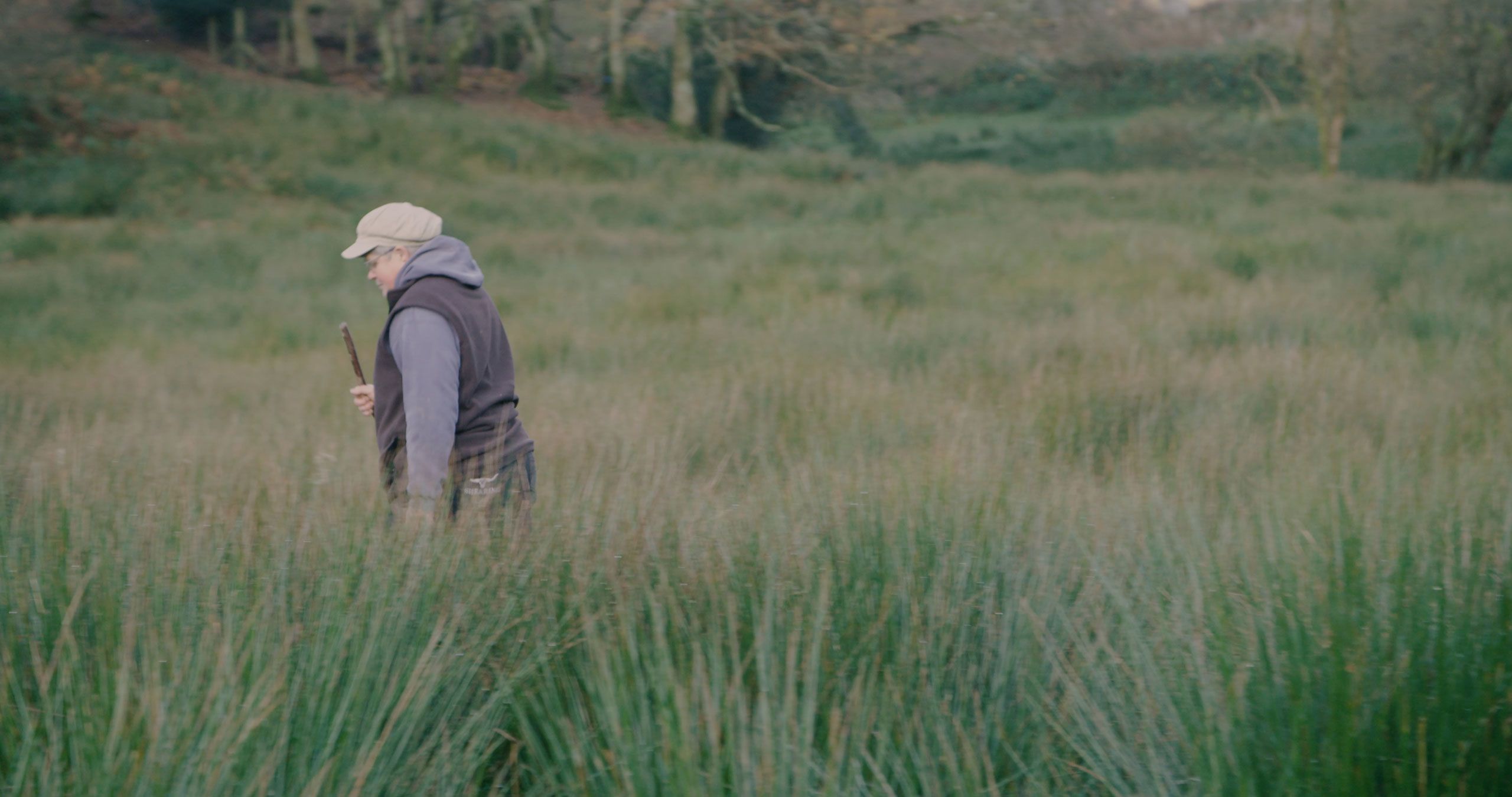

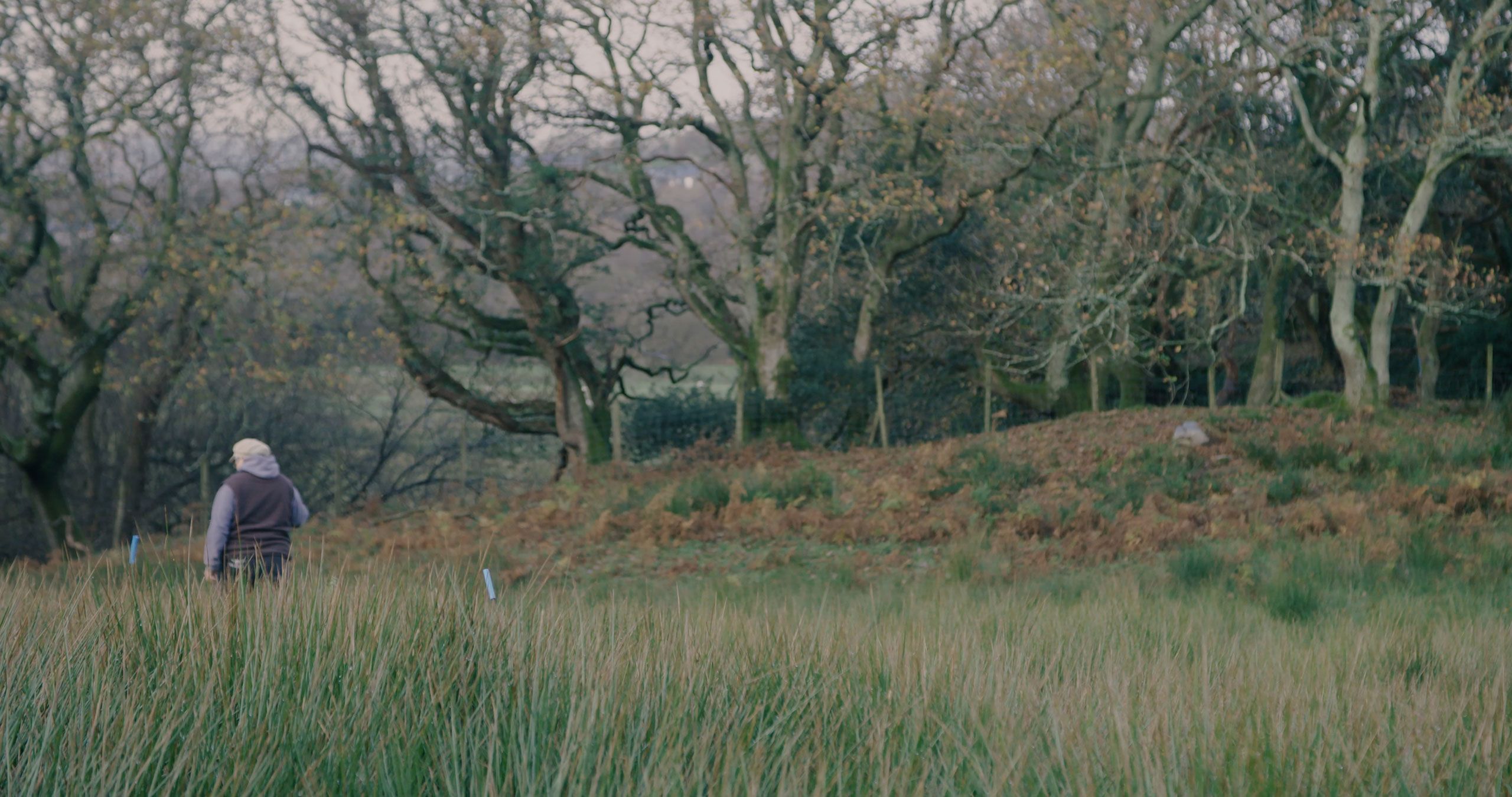
"My daughter has been a farmer since she was little."
She went to work down south and she milked for years, she milked about 300 cows and she could recognise all but 20 by their udders. She didn’t need to read tags to tell which cow was which. Now that’s a lot of udders.
The reality of farming is that sexism is still here.
When government departments send out letters to Mr O Ford, well Mr J Ford is an electrician and Mrs O Ford runs the farm. They’ll phone up and insist on speaking to Mr Ford. It’s still assumed that Mr Ford runs the farm, it’s still done, I don’t understand it but it’s still there.
When I sell in the market, I’m respected but bear in mind I’m now well into my 50s and it’s taken years to get that respect.
The traditional stereotype farmer is a strapping male and a woman with a basket bringing tea and cakes to the hayfield.

It used to be women doing the calves, maybe because they had a bit more patience with the calves than the men?
There were certain traditional jobs that were either seen as male or female but with the advent of machines there is no reason why women can’t do all the jobs a man can.
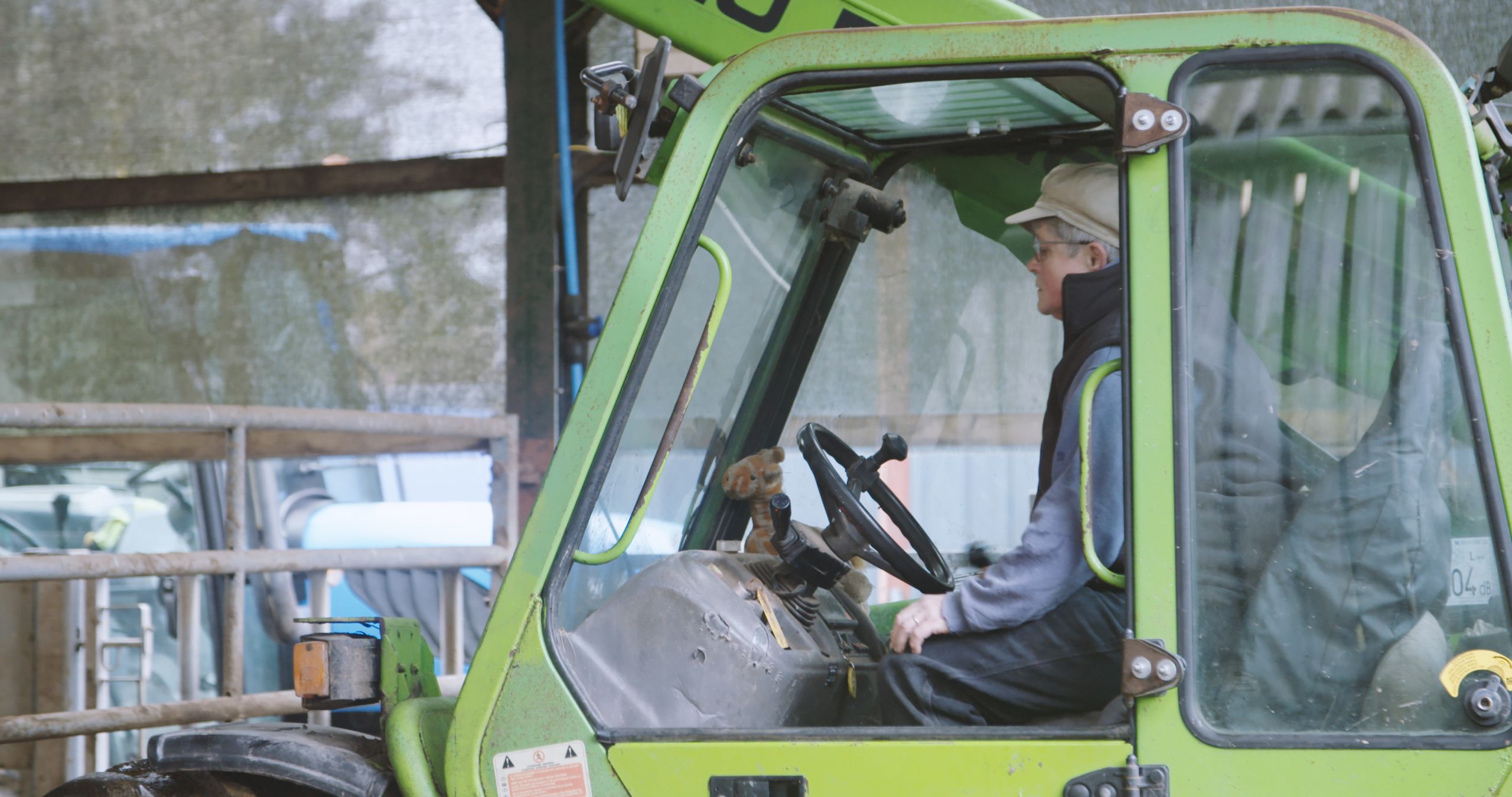
Technology means you no longer need the physical strength you used to need in farming. If it does, then something is wrong.
I’ve had two kids. When calving, I am aware of what a cow might be feeling. A calve was presenting once and I had to call the vet. I needed some support, so he came out, good vet, nice bloke but he was yanking and pulling and I thought ‘Ooooo gosh!’ I thought that’s a man doing that.

"You don’t have to go that far back in time, when everyone had somebody who was connected to farming, we all had some knowledge of the reality of food production."
But then cheap food happened and where it came from became irrelevant to people.
COVID has focused peoples’ minds on where their food comes from, how it is produced and what they are actually eating.
To diversify my income, I work as a taxi driver. I always talk to my customers, they don’t make the connection to the lamb in a field and the food in the shops. There’s a distance. When you talk about how beef is produced, they admit to ignorance and that makes them sad.
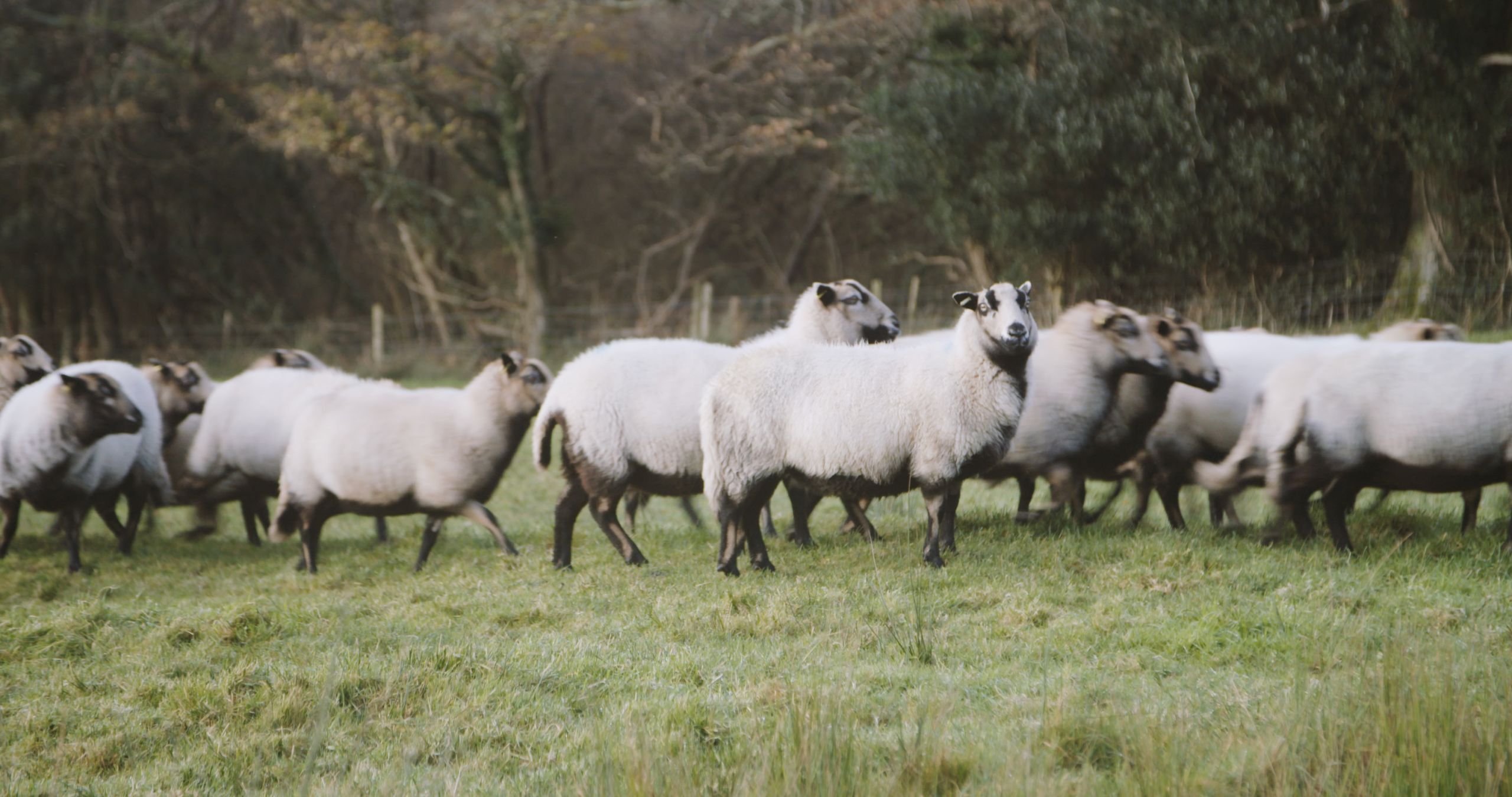
"We need to start educating people to the realities of where food comes from."
Farming is incredibly erratic, there is no guarantee of payment. There is no necessity for the market to pay the price it costs you to keep an animal. With dairy for example milk buyers are under no obligation to pay the cost of production. I am surprised the food industry is allowed to even behave like this.
If you sell cardboard boxes, if you don’t like the price being offered you don’t sell the box but if you are producing milk that goes off you have no choice but to sell the milk.

"To say that farmers are callous is just ridiculous."
My daughter said there was a big dairy farmer she knew, he’d have a number that failed each year and he would sort them out ready for the lorry to take them away. He can’t be around when the lorry comes, he can’t bear it to see them leave. It’s sad that the public think farmers are callous.
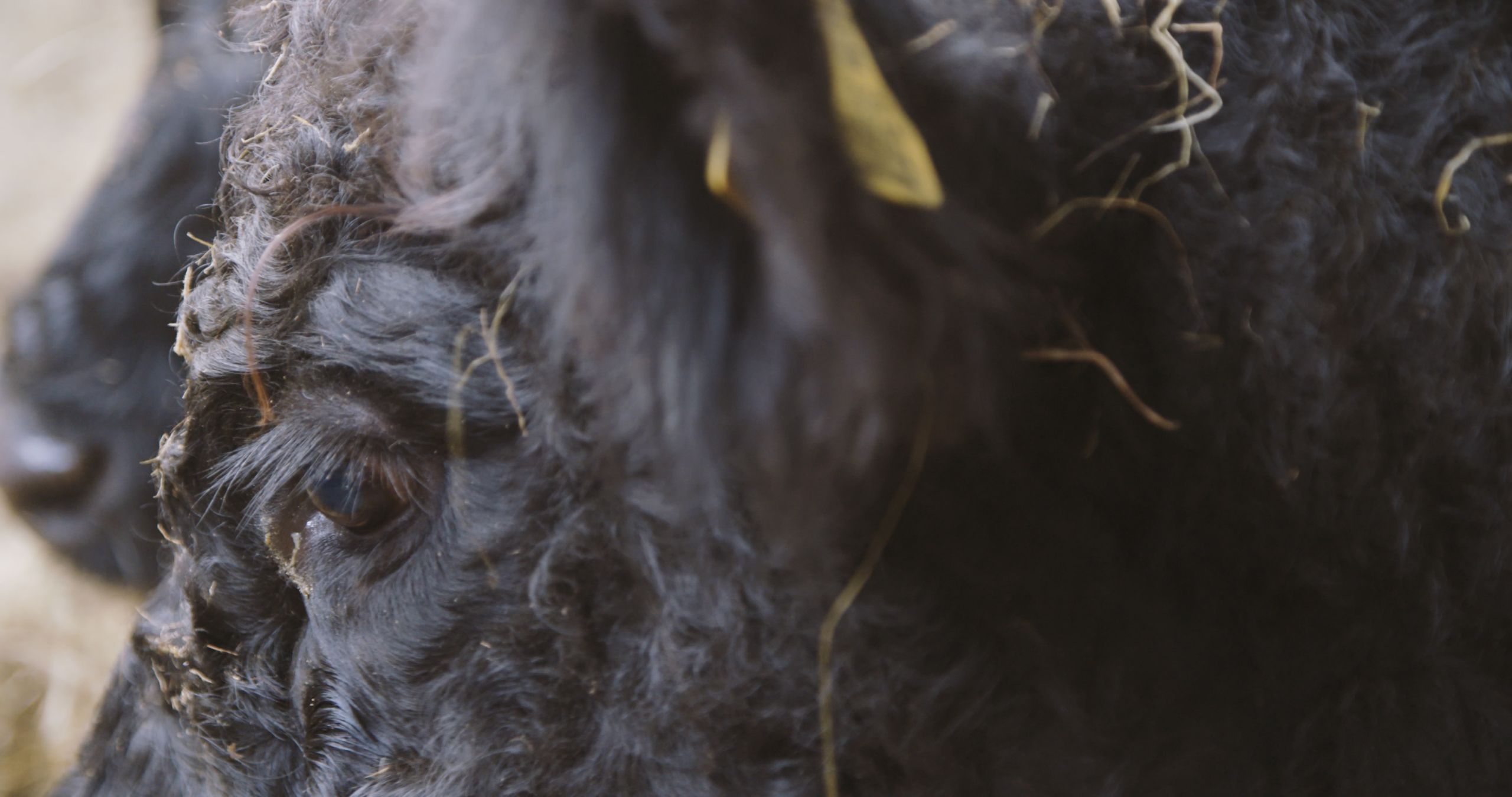
You need to have a healthy respect for animals, you get a kick in the wrong place and it’s bad news. You’ll see a young male farmer, trying to force an animal, they’ve got the strength but I think give it twenty years mate and you’ll be thinking of another way of doing that.
I try to keep cattle that are of a good nature because if it’s between me and half a tonne of a beast which is antisocial - that can be dangerous.
There’s not enough money in farming to risk getting hurt - but I do enjoy it and I want to continue doing it.

"I am happy in this area, very happy. Our family has only been here since 1949 but I was born and bred here - I’m a child of the sixties."
But I’m still seen as an incomer. My daughter and son were born and bred here but they haven’t lived here long enough either. It’s a weird feeling. We’re not old Welsh. I’m not sure how many 100 years I’d have to live round here to be seen as from here? I’m still waiting for that to happen.
Olwen was interviewed by filmmaker Mark Jones.
Mark Jones is a documentary filmmaker based in the south west of England. He works internationally and frequently collaborates with researchers on knowledge exchange and impact projects. Recent partners include: Oxford University, Queensland University (Australia), Fribourg University (Switzerland), Battersea Arts Centre and the National Trust.
vimeo.com/unmarkedfilms
Mark’s films about North Welsh farmers Geraint Davies and Olwen Ford, produced for FIELD, will be screened as part of the FIELDS film programme at Hexham Forum Cinema 28 September, Star & Shadow Cinema 21 October and Everyman Cinema Lincoln 18 November, 2021.
All content © Mark Jones 2020
